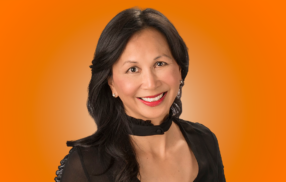
To Win the Talent Race, It’s Time to Get to Know Gen Z
By Emily Freehling
As director of brand marketing for E. & J. Gallo Winery, Adam Weinberg (MBA ’12) took note when a young woman he hired during the height of the COVID-19 pandemic told him she wasn’t considering potential employers who didn’t match her personal values.
“She is graduating from college during a pandemic, and she is still filtering out companies that don’t commit to the things that are important to her,” Weinberg recalls thinking.
The woman went on to become Weinberg’s first hire from Generation Z. Born after 1996, this generation is entering the workforce in growing numbers. The U.S. Bureau of Labor Statistics projects that Gen Z will account for 30 percent of the U.S. civilian labor force by 2030.Many of the oldest members of Gen Z have experienced college, internships and their first full-time jobs in a virtual environment dictated by pandemic limitations.
They’ve also come of age as the country has grappled with racial and social justice issues and weathered a political environment that has been fiercely partisan and marked by an erosion of norms. Gen Z is more diverse than any other American generation, with 2018 research by the Pew Research Center finding that racial and ethnic minorities account for 48 percent of Gen Z in the U.S. As Gen Zers begin to enter the workforce in larger numbers, members of Darden’s Alumni Career Services (ACS) and Career Center coaching teams are seeing sentiments that mirror those of Weinberg’s first Gen Z hire.
“Having a social impact in their work is incredibly important to this generation,” said Jennifer Coleman, executive director of ACS. “Companies that aren’t immediately associated with social good need to be thinking about how they are doing social good, even if it’s indirectly.
There has to be that component in order to attract the best and brightest.
“Multiple surveys confirm this assertion. A 2018 survey of Gen Z individuals by Deloitte found that 77 percent of respondents said it was important to work for companies whose values aligned with their own. In a 2021 survey conducted by communications consultancy Porter Novelli, 55 percent of currently employed Gen Z workers said they were reconsidering their job because their current employer hadn’t done enough to address social justice issues externally.
As Gen Z prepares to become the primary source of talent for MBA programs, the Darden Admissions team increasingly sees interest in the School thanks to its focus on empowering students to improve business and society.
On the Move
While publications such as the New York Post have trumpeted how Gen Zers and younger millennials take to TikTok to brag about job-hopping, younger workers aren’t the only part of the workforce that is highly mobile right now. Record numbers of job resignations in 2021 have led researchers to coin terms such as “The Great Resignation” or “The Great Reshuffle” to describe the current labor market.
What distinguishes Gen Z, Coleman says, is the speed at which these very young workers are willing to jump ship for something they feel will be a better fit.
“They won’t think twice about looking for another job if they’ve been in a job for six months,” she said.
Although that may bring to mind Gen X pop hero Ferris Bueller’s advice that “Life moves pretty fast,” there are things employers can do to respond to the quick pace at which this younger generation expects to see change happen. Weinberg said he’s come to the realization that the traditional system of annual performance reviews looks glacially slow to younger employees.
“They are not OK waiting for a review once a year,” he said. “They are looking for constant interaction, constant feedback. That has been a real change, and just managing an older millennial versus a member of Gen Z, the level of feedback and interaction they are looking for is much greater. They are trying to better themselves, and I think it’s really inspiring to see this new generation talk about things and demand things that we never did.”
Authenticity Is Essential
Gen Zers are digital natives. They’ve never known a world where you couldn’t use Google, Facebook, Yelp or Twitter to find out what people are saying about restaurants, consumer products, movies and, yes, even employers.
This means companies that want to prove their do-good chops — especially in the areas of sustainability, diversity and social justice — need to make sure they can back up their claims with concrete examples and actions, says Jeff Tang (MBA ’13), senior director of marketing and general management careers at Darden’s Career Center.
“Every single company says, ‘We really want to recruit students of color,’” Tang says. “Well, show me the success stories that you have. Show me the leadership support and mentorship that exists to help create the outcomes these students are seeking. Unless you have some tangible proof to differentiate yourself, you are a day late and a dollar short.”
Weinberg sees a growing demand for less talk and more action when it comes to demonstrating company values.
“For so long, companies could get away with saying things but not actually doing things,” he said. “GenZ is really bringing a new level of authenticity to the table. If we say a brand is about inclusivity — what is the company doing to deliver that? It’s about brands taking actions and not just creating ads to talk about the values they have.”
Mental Health Is Paramount
Weinberg says that Gen Z members of his team have brought with them an openness about mental-health issues that previous generations often avoided.
“They have really opened up the conversation about mental health and wellness,” he said. “It is really enlightening, and we have seen it even in our own team meetings where one of the Gen Z individuals will bring up mental health and wellness and others will start to open up about it as well.”
A January report from McKinsey & Co. found that members of Gen Z reported lower levels of emotional and social well-being than previous generations. In McKinsey’s survey, Gen Z respondents reported experiencing emotional distress at a rate that was double that of millennials and Gen X and triple that of baby boomers. The fact that this generation has seen formative experiences in high school, college and first jobs eliminated or greatly transformed because of the pandemic has amplified this problem. It should also play into employers’ planning around workplace flexibility going forward to ensure workers get the social and emotional support they need.
“There is no question that the younger generation expects a flexibility that, when we were coming out of college, we would never dream of,” Coleman said.
However, the other side of that coin is that nonstop remote work can be isolating and draining.
“Some of the most challenging cases of young alums I’ve worked with since COVID are the ones working 100-hour weeks from their studio apartment or their parents’ basement,” she said. “As much as young people want flexibility, they also want and need mentoring and training. It’s difficult to get that in meaningful way when everyone is remote.”
What’s required is a more empathetic approach to leadership, says Tang, who notes that many of the workplace preferences that are attributed to Gen Z are also felt in older generations due to the pressures of the pandemic and the national discourse on race and social justice.
“A lot of this stuff had been bubbling prior to the pandemic,” he said. “Gen Z was really at the forefront of it. Then the pandemic hit and all of us started feeling these things, and some of these doors got knocked down.”
This feature is included in the Summer 2022 edition of The Darden Report magazine.
The University of Virginia Darden School of Business prepares responsible global leaders through unparalleled transformational learning experiences. Darden’s graduate degree programs (MBA, MSBA and Ph.D.) and Executive Education & Lifelong Learning programs offered by the Darden School Foundation set the stage for a lifetime of career advancement and impact. Darden’s top-ranked faculty, renowned for teaching excellence, inspires and shapes modern business leadership worldwide through research, thought leadership and business publishing. Darden has Grounds in Charlottesville, Virginia, and the Washington, D.C., area and a global community that includes 18,000 alumni in 90 countries. Darden was established in 1955 at the University of Virginia, a top public university founded by Thomas Jefferson in 1819 in Charlottesville, Virginia.
Press Contact
Molly Mitchell
Associate Director of Content Marketing and Social Media
Darden School of Business
University of Virginia
MitchellM@darden.virginia.edu




